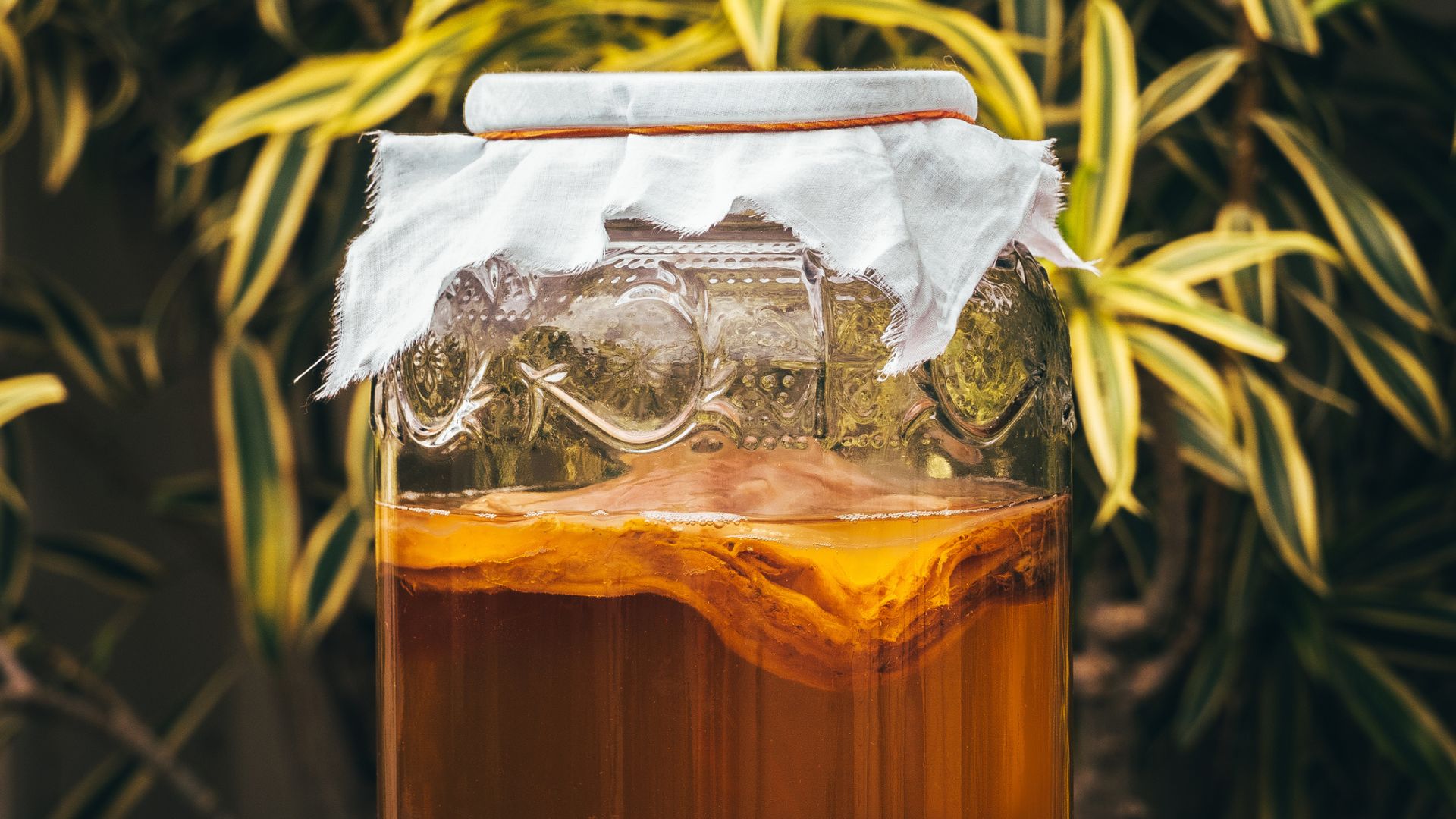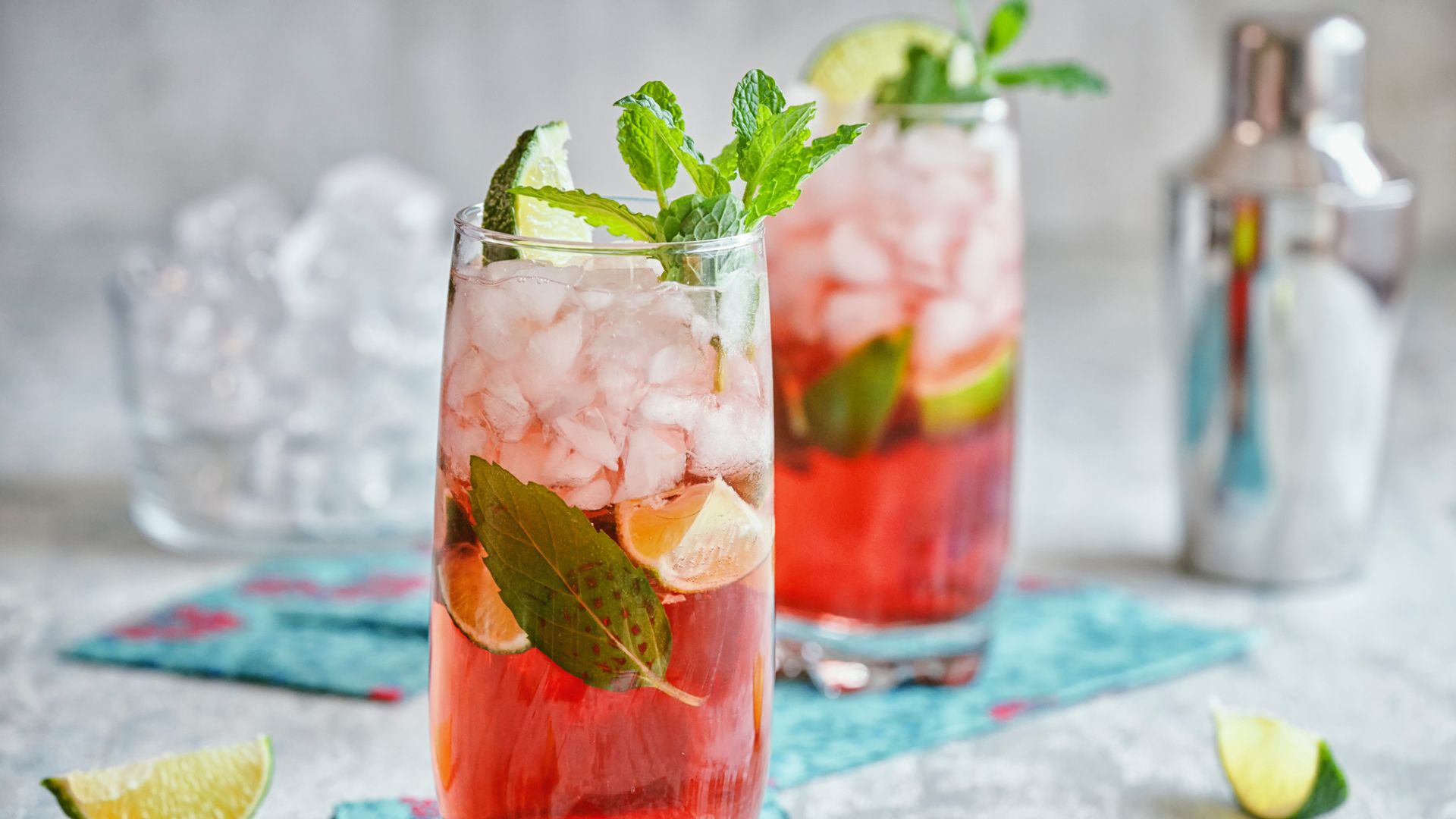How often should you drink kombucha? Here’s what I learned after drinking it for a week
How often should you drink kombucha? I tried it for a week and consulted a gut health expert to find out


How often should you drink kombucha? Whether you’re a long-time fan of this fermented drink or a cautious newcomer to the trend, it’s worth knowing how much you need to drink to reap the health benefits.
While the tradition of the drink comes from China, the name is actually Japanese and is made up of ‘kombu’, the word for algae, and ‘cha’ which is the word for tea. Kombucha is a black or green tea, depending on which type you go for, that's been fermented with sucrose along with a specific type of healthy bacteria, for between ten to fourteen days.
As a health editor and fitness enthusiast with five years of testing out the latest wellness trends and workouts, from adaptogens and mushroom coffee to low-intensity training, I'm no stranger to trying something new and seeing how it can impact my lifestyle for the better. So to explore the world of kombucha and put all of its perceived health benefits to the test, I tried out the drink for a week.
How often should you drink kombucha?
It’s safe to drink 120ml of kombucha, one to three times per day, according to the CDC, following a study by the University of Missouri. “Consuming more than 360ml of the fermented beverage in one day is definitely not recommended,” adds Dr Claire Shortt, a gut health specialist and nutritionist.
But like everything else when it comes to our health, everyone is different. “Each of us can tolerate different amounts of foods, so it’s important to check what works best for you and your gut. Often dietary advice is very generalized,” she says.
As one of the best low calorie non-alcoholic drinks in a can to buy, kombucha is sold pretty much everywhere in the US and the UK. I opted for three different brands to drink at home: The famous Remedy kombucha, Genie kombucha, and Jarr kombucha. I also got the chance to have kombucha as part of a mocktail at Yeotown in London.
In all cases apart from Jarr (which comes in 240ml servings), I was drinking 330ml of kombucha once per day, every day for a whole week so sticking to just below this maximum amount.
Sign up for the woman&home newsletter
Sign up to our free daily email for the latest royal and entertainment news, interesting opinion, expert advice on styling and beauty trends, and no-nonsense guides to the health and wellness questions you want answered.

A jar of homemade kombucha with the bacterial layer fermenting on top.
Benefits of kombucha
1. Help to improve gut health
We hear about our gut health all the time; how poor gut health impacts every part of our bodies and how there are easy ways to improve gut health. Drinking kombucha, Dr Shortt says, is another one to add to the list.
"A healthy gut microbiome is essential for our overall wellbeing," Shortt, who is also FoodMarble's lead scientist, stresses. "Kombucha is a rich source of probiotics and these are beneficial bacteria that help support our gut and help aid digestion, so the presence of probiotics in kombucha may help to increase the number of healthy bacteria in the gut."
I can't speak to the benefit myself as I haven't been drinking it regularly for long enough, but I found the fizz certainly settled my stomach.
2. Antimicrobial activity
The surge in interest around immunity supplements in recent years is hardly surprisingly, especially coming out of the pandemic. However, it's always important to make sure that what you're buying actually works.
Vitamin C is the obvious main choice but there's evidence to suggest that kombucha, particularly the anti-bacterial properties of the drink, could help your body's defence.
"Kombucha is known for its anti-bacterial capacity, which has been attributed to multiple components off the drink, including it's acetic acid content," Dr Shortt says. "This product is known to inhibit the growth of a range of pathogenic microbes."
3. Antioxidant activity
“The high polyphenol count in kombucha has been attributed to its potent antioxidant potential. Polyphenols, such as flavonoids, are compounds we get through plant-based foods that help to reduce oxidative stress, which can be a leading factor in the development of many diseases and illnesses."
But it's not only diseases and illness that kombucha can help to protect against. "The antioxidant activity of kombucha also helps to support the liver in removing toxins from the body," Dr Shortt says. While I didn't have a hangover during the course of my kombucha trial, after two glasses of wine on Friday night, I woke up feeling groggy. Post-kombucha, I felt alright again - that sluggish feeling in my stomach gone.
I shouldn't be too surprised at this though. Kombucha definitely has a hangover cure reputation, which is why many people reach for a kombucha when they’re trying to cut down how long hangovers last.

4. Suitable alternative to alcohol
Speaking of hangovers, kombucha makes for a great alternative to alcohol for anyone looking to cut back and try mindful drinking. While it should be easy, given that we all know the effects of alcohol and what alcohol really does to your face, there's no denying that much socializing revolves around booze. So I certainly had my reservations when it came to opting for a kombucha amongst other non-alcoholic drinks at a picnic on Saturday.
But as kombucha is, in my opinion, delicious and a naturally light, sparkling drink, I didn't really notice the difference and I walked away from the afternoon without the urge to go home and nap. Nobody noticed either, since the Remedy kombucha I was drinking could easily pass as a seltzer.
5. Great coffee alternative
Every day at 3pm, I feel the post-lunch slump hit me and normally, I'd reach for a double espresso or an Americano to perk me up for the rest of the day.
Busy at my desk this week, I didn't really get the chance to head out and get a coffee - and I'd (tragically) realized I'd run out of coffee at home too late. So on several days earlier this week, I drunk my kombucha instead, knowing that green tea was an essential element.
Sticking to the recommended max of 360ml per day though, I found that kombucha was one of the best healthy alternatives to coffee. Although it didn't offer quite the same kick, I really felt the difference amount 20 minutes after I'd finished sipping.
Is kombucha good for you?
Yes, there's loads of evidence to suggest that kombucha is a great drink of choice thanks to its numerous health benefits. Kombucha offers many of the same properties as tea - the same study by University of Missouri found - and so the benefits of tea and kombucha are similar. But it's also rich in probiotics, meaning it's a winner for your gut health too.
"The abundance of potential health benefits linked to the consumption of kombucha are mainly are due to the biologically active metabolites that are formed during the fermentation process," says Dr Shortt, referring to the substances produced after the process of metabolism.
However, because it’s not plain water, it does have some downsides. “Not only is sugar required during the fermentation process,” Dr Shortt explains, “But many kombucha manufacturers add additional sweeteners to the beverage. It’s worth being wary of the type and amount of extra sugar content added to your pick of kombucha.”
Kombucha, being made from tea, also contains caffeine. “Too much caffeine can be disruptive to sleep and it can irritate the gut lining, resulting in diarrhea," she says. And while rare, especially given the wide commercialization of kombucha in recent years, there is the risk of infection as it’s an unpasteurized drink. “It could potentially cause a bacterial infection in those who are immunocompromised."
Many kombuchas also make it onto the list of the best low-calorie alcoholic drinks in can as manufacturers can add spirits to them. For this reason and the fact they contain caffeine, Dr Shortt says, “Kombucha should be avoided by those who are immunocompromised, pregnant, and anyone who is breastfeeding.”
As for my own experience, I'll definitely keep kombucha in my drink rotation. Although it's more expensive than many other soft drinks, it's so full of health benefits that you can actually feel in real-time. It also tastes great, which is something we often don't think about when it comes to healthy alternatives, but is a huge plus point.

Grace Walsh is woman&home's Health Channel Editor, working across the areas of fitness, nutrition, sleep, mental health, relationships, and sex. She is also a qualified fitness instructor. In 2025, she will be taking on her third marathon in Brighton, completing her first ultra marathon, and qualifying as a certified personal trainer and nutrition coach.
A digital journalist with over seven years experience as a writer and editor for UK publications, Grace has covered (almost) everything in the world of health and wellbeing with bylines in Cosmopolitan, Red, The i Paper, GoodtoKnow, and more.
-
 How to have the wedding of your dreams on a shoestring budget
How to have the wedding of your dreams on a shoestring budgetWeddings can get expensive, fast. But, with some creativity and forward planning, you can easily do it on a budget
By Anna Paul
-
 Remember Zara Tindall's polka dot Easter dress? It's spot on for special occasions - and we can't believe it's reduced
Remember Zara Tindall's polka dot Easter dress? It's spot on for special occasions - and we can't believe it's reducedJust RSVP’d to a wedding? Her dress from 2022 can be yours
By Matilda Stanley